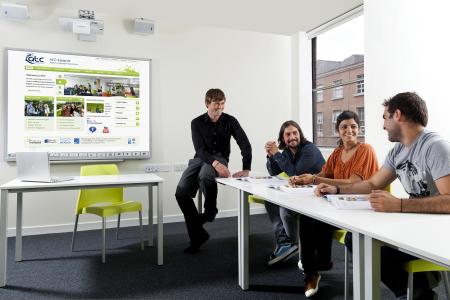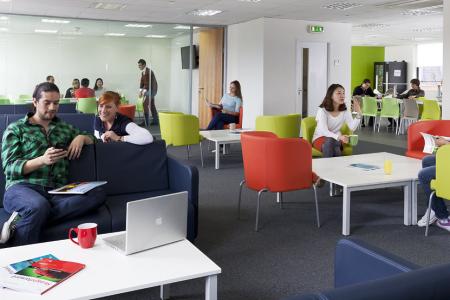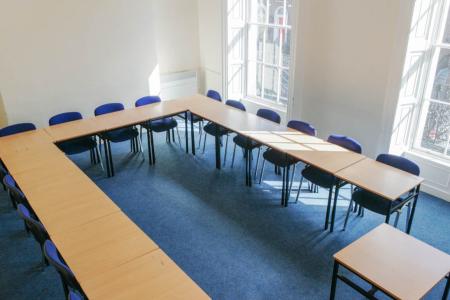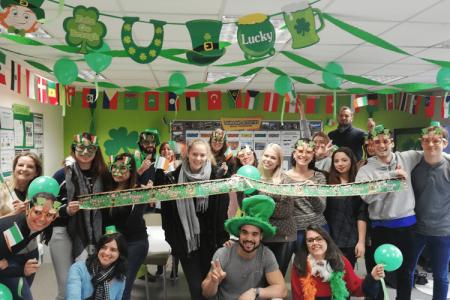COURSE DESCRIPTION:
Project-based teaching promotes learning across a broad spectrum of knowledge, skills and competencies. Students engaged in project work are given the opportunity to develop their 21st century skills of inquiry, critical thinking, problem solving, creativity, flexibility and leadership. They learn important communication skills of negotiation, mediation, information exchange, and goal-oriented cooperation. The right project is motivational and supports students in self-directed learning. On this course, teachers will explore the theory and methodology behind project-based learning (PBL) and will develop confidence in creating and implementing authentic, motivating projects with real-world contexts relevant to their students’ interests and identities. Teachers will look at the role of language instruction in PBL and consider ways of developing students’ language skills and competencies, within the framework of a project-based methodology. This course is practical and explores a variety of digital tools to facilitate collaborative online learning, using a project-based methodology. Teachers will learn how to successfully organise and manage a project, from the initial project idea to the final student output. Throughout the course, teachers will look at ways of using technology as a tool in project-based learning, fostering digital literacy skills in their students. The course also focusses on ways teachers can monitor and feedback on language use and work on language development during a project cycle.
WHO IS THIS COURSE FOR?
This course is for language teachers who are interested in project-based learning (PBL) and wish to further develop their digital competencies for project-based teaching in the digital age.
REQUIREMENTS:
Applicants must have a minimum B2 level of English, as outlined in the Common European Framework of Reference for Languages.
COURSE AIMS:
The main aim of this course is to help teachers:
- plan and implement a successful project using digital technologies,
- support students in the development of digital literacy skills by using technology to acquire, organise, store, demonstrate, and communicate information,
- support students in their language development during a project cycle.
COURSE METHODOLOGY:
1) PBL Methodology (see Sample Programme below)
2) Project Work
Teachers are set assigned project work which they carry out after their lessons. They are set a maximum of 10 hours of project work peer week, which they carry out over the course of the week. On Day 1 teachers work in pairs or small groups to choose a project outline and consider its main components. They then choose a small ‘slice’ of that project to develop into a final artifact for presentation. The aim of the project work is to encourage teachers to explore the digital tools looked at in the lessons and use them to work on their project slice, which they will present on their final day. Teachers will also be asked to take this time to record their reflections on their work, and on the processes involved in PBL.
SAMPLE PROGRAMME:
1) Monday - The Case for PBL
- Teachers are introduced to the basic methodology behind PBL, exploring the many benefits of this approach.
- Planning a Project (Idea to Output): Teachers look at frameworks for planning projects from the initial project idea, through the process of project development and successful implementation, to the final project output. They learn how to create strong driving questions to initiate and focus projects.
2) Tuesday - Acquiring Content
- Teachers look at tools and techniques for supporting students in their project research.
3) Wednesday - Language Instruction in PBL
- In this module teachers consider language input and look at ways to guide students through target language research and to support students in their language output. They also look at ideas and techniques for helping students to notice and collect useful language throughout a project cycle.
4) Thursday - Creating and Organising Content
- Here teachers look at tools and techniques for supporting students in content creation and compiling digital portfolios of project work.
5) Feedback and Reflection in PBL
- The aim of this module is to consider how we can best foster reflection, an important component of PBL. Teachers look at ways to encourage students to reflect on what they are learning, and how they are learning. We look at ways for giving and receiving feedback on project artefacts, focusing on both teacher-feedback and peer-feedback.
- Teachers will consider how project portfolios might be used for formative assessment and will explore tools for providing feedback on digital portfolios.
LEARNING OBJECTIVES:
By the end of the course teachers should be better able to:
- Create authentic, motivating project topics with real-world contexts relevant to their students’ interests and identities.
- Set clear learning objectives and success criteria for projects.
- Consider the role of language instruction in PBL.
- Help students to consider a challenging problem to solve or question to answer. Create strong driving questions to initiate and focus projects.
- Create project flowcharts and checklists to support the successful implantation of projects.
- Support students digitally to research and acquire information.
- Support students to create digital content and digital project artefacts.
- Support students digitally to organise and store project artefacts and to present project output.
- Encourage and foster reflection, providing students with opportunities throughout a project cycle to reflect on what and how they are learning.
- Encourage and foster student autonomy by supporting students to make choices about what they create, and how they work collaboratively and individually.
- Include processes in the project design to enable students to give and receive feedback on their work.
INCLUDED IN THE COURSE:
- Lessons: 20 hours tuition + 10 hours of project work per week
- Course materials included
- Trainer feedback on project work
- Interactive discussions with other teachers
- End-of-course certificate
OTHER INFORMATION:
If minimum number per course are not met, we will offer participants a combination of General English development and Teacher Training Development as an alternative. Therefore:
- For courses with 9 particpants or more we will offer the full course as indicated.
- For courses with 5-8 particpants we will offer 20 hours General English and 10 hours of Teacher Training Development in the afternoons.
- For courses with 1-4 particpants we will offer 20 hours General English and 5 hours of Teacher Training Development in the afternoons.
Przykładowe zajęcia dodatkowe:

bilard *, bowling *, cycling *, ice scating *

art and craft workshops, board games, city tour/walk, conversation practice, cultural activities, guided city tours *, guided museum tours *, orientation tour, pub and restaurant evenings, school party, sightseeng

Moher Cliffs *, Guiness Storehouse *, Jameson Destillery *, St Patrick Cathedral, Dublin Castle *
* zajęcia dodatkowo płatne










